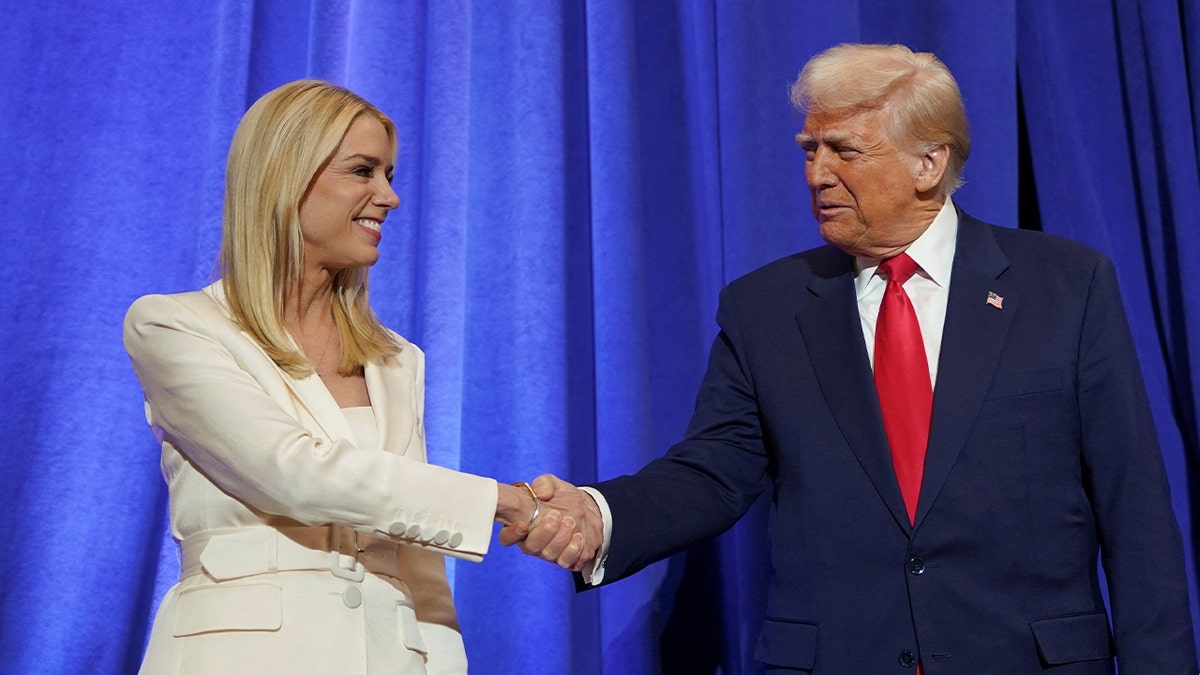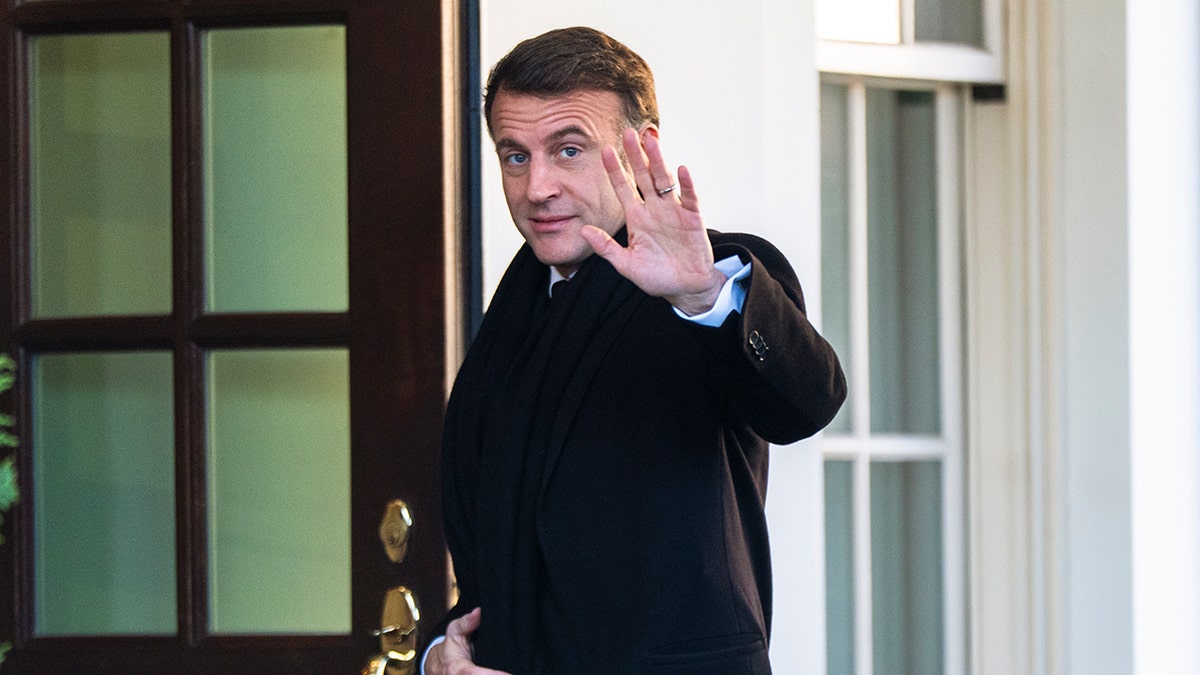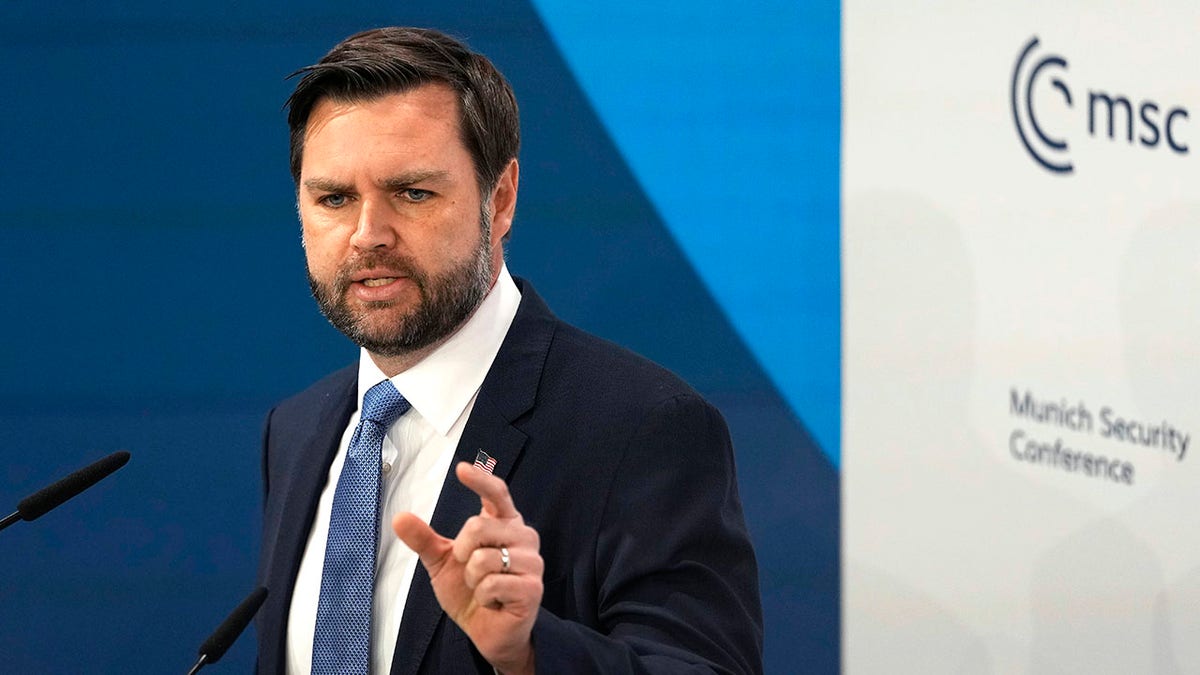INTERNACIONAL
India’s parliament passes bill that would change Muslim land endowments

- India’s parliament passed a controversial bill that amends laws governing Muslim land endowments, known as waqfs, by including non-Muslims on the boards that manage these properties and increasing government oversight.
- The government claims the changes aim to combat corruption and promote diversity, but critics argue it undermines Muslim rights and could lead to the confiscation of historic religious sites.
- Muslim groups and opposition parties have expressed concerns that the bill is politically motivated, and could marginalize Muslims by altering ownership rules and requiring waqf boards to validate property claims.
India’s parliament passed a controversial bill moved by Prime Minister Narendra Modi’s Hindu nationalist government to amend laws governing Muslim land endowments, while Muslim groups and opposition parties protested the move.
The bill would add non-Muslims to boards that manage waqf land endowments and give the government a larger role in validating their land holdings. The government says the changes will help to fight corruption and mismanagement while promoting diversity, but critics fear that it will further undermine the rights of the country’s Muslim minority and could be used to confiscate historic mosques and other property.
The debate was heated in both houses of parliament. The Lower House debated it Wednesday through early Thursday, while in the Upper House, the fiery discussion lasted more than 16 hours into early Friday.
The Congress-led opposition firmly opposed the proposal, calling it unconstitutional and discriminatory against Muslims. Modi’s ruling Bharatiya Janata Party lacks a majority in the Lower House, but its allies helped to pass the bill.
MUSLIMS IN INDIA VOICE CONCERNS THAT NEW CITIZENSHIP LAW COULD FURTHER MARGINALIZE THEM
In the Lower House, 288 members voted for the bill while 232 were against it. Similarly, 128 favored it and 95 voted against it in the Upper House. The bill will now be sent to President Droupadi Murmu for her assent to become law.
Raza Academy members shout slogans in Mumbai, India, to condemn the Waqf amendment bill that was passed early Thursday by the Lower House of India’s parliament, Thursday, April 3, 2025. (AP Photo/Rajanish Kakade)
Minority Affairs Minister Kiren Rijiju introduced the bill to change a 1995 law that set rules for the foundations and set up state-level boards to administer them.
Many Muslim groups, as well as the opposition parties, say the proposal is discriminatory, politically motivated and an attempt by Modi’s ruling party to weaken minority rights.
The bill was first introduced in parliament last year, and opposition leaders have said some of their subsequent proposals for it were ignored. The government has said opposition parties are using rumors to discredit them and block transparency in managing the endowments.
What’s a waqf?
Waqfs are a traditional type of Islamic charitable foundation in which a donor permanently sets aside property — often but not always real estate — for religious or charitable purposes. Waqf properties cannot be sold or transferred.
Waqfs in India control 872,000 properties that cover 405,000 hectares (1 million acres) of land, worth an estimated $14.22 billion. Some of these endowments date back centuries, and many are used for mosques, seminaries, graveyards and orphanages.
Law would change who runs waqfs
In India, waqf property is managed by semi-official boards, one for each state and federally run union territory. The law would require non-Muslims to be appointed to the boards.
Currently, waqf boards are staffed by Muslims, like similar bodies that help administer other religious charities.
During the parliamentary debate, Home Minister Amit Shah said non-Muslims would be included in waqf boards only for administration purposes and to help run the endowments smoothly. He added that they were not there to interfere in religious affairs.
«The (non-Muslim) members will monitor whether the administration is running as per law or not, and whether the donations are being used for what they were intended or not,» he said.
Muslim groups, like The All India Muslim Personal Law Board, said such comments were against the fundamentals of Islamic endowments as such bodies necessarily need to be governed by Muslims only. The board said the bill was «a blatant infringement on the constitutional rights of Muslim citizens» and called on citizens to hit the streets against it.
Mallikarjun Kharge, the Congress president, said, «Why should waqf bodies allow non-Muslims as members when Hindu temple trusts don’t allow people of other religions in their fold?»
One of the most controversial changes is to ownership rules, which could impact historical mosques, shrines, and graveyards, since many such properties lack formal documentation as they were donated without legal records decades, and even centuries, ago.
Questions about title
Other changes could impact mosques on land held in centuries-old waqfs.
Radical Hindu groups have laid claim to several mosques around India, arguing they are built on the ruins of important Hindu temples. Many such cases are pending in courts.
The law would require waqf boards to seek approval from a district level officer to confirm the waqfs’ claims to property.
Critics say that would undermine the board and could lead to Muslims being stripped of their land. It’s not clear how often the boards would be asked to confirm such claims to land.
«The Waqf (Amendment) Bill is a weapon aimed at marginalizing Muslims and usurping their personal laws and property rights,» Rahul Gandhi, the main opposition leader, wrote on social media platform X. He said the bill was an «attack on the Constitution» by the BJP and its allies «aimed at Muslims today but sets a precedent to target other communities in the future.»
INDIA’S RELIGIOUS DIVIDE CONTINUES TO WIDEN BETWEEN MUSLIM, HINDU COMMUNITY
Fears among Muslims
While many Muslims agree that waqfs suffer from corruption, encroachments and poor management, they also fear that the new law could give India’s Hindu nationalist government far greater control over Muslim property, particularly at a time when attacks against minority communities have become more aggressive under Modi, with Muslims often targeted for everything from their food and clothing styles to inter-religious marriages.
Last month, the U.S. Commission on International Religious Freedom said in its annual report that religious freedom conditions in India continued to deteriorate while Modi and his party «propagated hateful rhetoric and disinformation against Muslims and other religious minorities» during last year’s election campaign.
Modi’s government says India is run on democratic principles of equality and no discrimination exists in the country.
Muslims, who are 14% of India’s 1.4 billion population, are the largest minority group in the Hindu-majority nation, but they are also the poorest, a 2013 government survey found.
CLICK HERE TO GET THE FOX NEWS APP
INTERNACIONAL
Trump admin suspends lawyer in case of Maryland man mistakenly deported for failing to ‘zealously advocate’

The Trump administration has placed a Justice Department (DOJ) lawyer on leave for not «zealously advocating» its position in the case involving a Salvadoran man living in Maryland who was mistakenly deported last month.
Attorney General Pam Bondi’s office placed Erez Reuveni, who argued for the government, in Friday’s hearing in which a judge ruled Maryland father Kilmar Abrego Garcia must be returned to the U.S. by Monday, on indefinite paid leave, Fox News has learned.
«At my direction, every Department of Justice attorney is required to zealously advocate on behalf of the United States,» Bondi told the New York Times in a statement. «Any attorney who fails to abide by this direction will face consequences.»
Fox News Digital has reached out to the DOJ for comment.
JOHN YOO URGES TRUMP ADMIN TO ‘WORK OUT A DEAL’ TO RETURN MISTAKENLY DEPORTED INDIVIDUALS
In this undated photo provided by the U.S. District Court for the District of Maryland, a man identified by Jennifer Vasquez Sura as her husband, Kilmar Abrego Garcia, is led by force by guards through the Terrorism Confinement Center in Tecoluca, El Salvador. (U.S. District Court for the District of Maryland via AP)
Reuveni on Friday admitted that Garcia’s deportation was a mistake, according to the New York Times.
On Saturday, the Trump administration argued in an emergency appeal that U.S. District Judge Paula Xinis can’t force the administration to return Garcia to the U.S.
Xinis on Friday ruled that the government must make arrangements to have Garcia back in the U.S. before Monday at midnight.
The Saturday emergency appeal seeks to temporarily stay Xinis’ decision until the government has time to properly appeal the ruling.
«Late Friday afternoon, a federal district judge ordered the United States to force El Salvador to send one of its citizens – a member of MS-13, no less – back to the United States by midnight on Monday. If there was ever a case for an emergency stay pending appeal, this would be it,» the government wrote in the emergency appeal reviewed by Fox News Digital.
The government also argued that it «does not have control over» Garcia now that he is in El Salvador.
«Nevertheless, the court’s injunction commands that Defendants accomplish, somehow, Abrego Garcia’s return to the United States in give or take one business day,» the appeal said, calling it «indefensible.»

An undated photo shows Kilmar Abrego Garcia. (Murray Osorio PLLC via AP)
The filing said that the judge «lacked the power» to require the government «on the clock, to try to force a foreign country to take a discrete action.»
It added, «Abrego Garcia has been found to be a member of a designated Foreign 3 Terrorist Organization, MS-13. Given that status, he has no legal right or basis to be in the United States at all.»
VANCE DOUBLES DOWN AFTER TRUMP ADMIN ADMITS ‘ERROR’ SENDING MAN TO SALVADORAN PRISON
Xinis on Friday said that the U.S. Immigration and Customs Enforcement’s March 15th expulsion of Garcia violated the Administrative Procedures Act, since it occurred without a judicial proceeding.
The Trump administration has acknowledged Garcia’s removal was an «administrative error,» but has also defended it, alleging that Garcia has ties to MS-13.
«This individual is an illegal criminal who broke our nation’s immigration laws. He is a leader in the brutal MS-13 gang, and he is involved in human trafficking,» White House press secretary Karoline Leavitt said in a briefing on Tuesday.

U.S. Attorney General Pam Bondi said all government lawyers are required to «zealously advocate» on its behalf. (REUTERS/Nathan Howard)
«And now MS-13 is a designated foreign terrorist organization. Foreign terrorists have no legal protections in the United States of America. And this administration is going to continue to deport foreign terrorists and illegal criminals from our nation’s interior,» she added.
An immigration judge five years ago said Garcia, who came to the U.S. illegally in 2011 and asked for asylum, could not be deported to his home country, over concerns he would become a victim of local El Salvador gang members.
His request for asylum was denied, but he was given protection from deportation and ICE didn’t appeal the decision.
Garcia’s wife, Jennifer Vasquez Sura, who is a U.S. citizen, has vigorously campaigned for his return.
Garcia had been working as a sheet metal apprentice in Maryland and was arrested in an IKEA parking lot on March 12 while his 5-year-old son was in the car.
CLICK HERE TO GET THE FOX NEWS APP
His lawyers have argued the man had a Department of Homeland Security permit to work in the country, and strongly deny any gang affiliations. They also say that the government has given little evidence to back up its claim.
There was no indication how the government would comply, since he is incarcerated in an El Salvador prison under that government’s custody.
Fox News’ Cameron Arcand and The Associated Press contributed to this report.
Politics,Deportation,Immigration,Federal Courts,Trump’s First 100 Days
INTERNACIONAL
JD Vance’s warning on Europe’s future shines spotlight on continent’s growing list of problems

Following Vice President JD Vance’s warning that Europe was at risk of ‘engaging in civilizational suicide,’ the continent has come under the microscope for largely failing to deal with mass migration from mostly Third World countries. Associated with that has been a massive rise in violent crime and a failing economy.
Freedom of speech is under attack as many complain of a two-tier justice system and, making things even more problematic, Europe’s economy is not performing as expected.
United Kingdom
The U.K.’s economy has remained stagnant for the last three years with no growth in per capita income. «The country has pathetic performance, says Ben Habib, chairman of the Great British Political Action Committee, and former co-deputy leader of Reform UK. «The U.K. has become even worse than Europe.»
TODDLER KICKED OUT OF NURSERY SCHOOL FOR BEING TRANSPHOBIC: ‘THIS IS TOTALITARIAN INSANITY’
The Houses of Parliament in London, England, on Friday, Sept. 23, 2022. (Chris J. Ratcliffe/Bloomberg via Getty Images)
Migration is now a national talking point. Immigration increased to between 1.2 and 1.3 million in 2022 and 2023, up from around 800,000 before the pandemic. It’s causing friction.
«National togetherness is now being torn to shreds as unprecedented levels of mass migration transform parts of our country beyond recognition,» observed Conservative Party Member of Parliament Robert Jenrick in a column for the UK Conservative & Reformer Post. «We have imported ethnic and religious tensions, meaning that conflicts on the other side of the world play out on Britain’s streets.»
Earlier this week, the State Department said it was monitoring the case of a woman in Britain who was put on trial for holding a sign offering counseling to women outside an abortion facility in the United Kingdom.
Fox News Digital reported the woman said, «Great Britain is supposed to be a free country, yet I’ve been dragged through court merely for offering consensual conversation … peaceful expression is a fundamental right—no one should be criminalized for harmless offers to converse.»

New Scotland Yard on October 2, 2008, in London, England. ((Photo by Dan Kitwood/Getty Images))
Violent assaults have also marred many parts of the U.K., when compared to other members of the Organization for Economic Co-operation and Development (OECD.) Scotland topped the list with 1,487 assaults per 100,000 people, according to data from the United Nations Office on Drugs and Crime. England and Wales ranked number three on the list with 730 violent assaults per 100,000 residents.
Fox News Digital previously reported that Britain was facing a free speech crisis due to the new left-leaning government, overzealous policing and courts cracking down on freedom of expression. Last August, the government warned its citizens to be mindful of posting content deemed offensive and threatened imprisonment. The Crown Prosecution Service posted a warning to social media platform X, which was amplified by the government’s official social media accounts, warning citizens, «Think before you post!»
UNITED KINGDOM COULD BE ONLY G7 NATION NOT TO PRODUCE ITS OWN STEEL; CHINESE OWNER BLAMES TRUMP TARIFFS

French President Emmanuel Macron arrives at the White House, Monday, Feb. 24, 2025, in Washington. (Manuel Balce Ceneta/AP Photo)
France
France’s economy has expanded in each of the last four years, but the rate of growth slowed dramatically. France also has a high debt level that will make it hard for the economy to grow fast, Venetis says.
Migration is a continuing problem in France with an influx of 317, 000 immigrants from outside the EU in 2022, up from 222,000 in 2013.
REPORTER’S NOTEBOOK: AFTERSHOCK FROM A POLITICAL ‘EARTHQUAKE’ AS LE PEN BARRED FROM PRESIDENTIAL RUN IN 2027
Right-wing politicians, such as those in the National Rally, are highlighting the friction that the influx of people who don’t want to integrate into French society. National Rally leader Marine Le Pen, who up until this week was a leading candidate for the country’s 2027 presidential election, was just given a two-year prison sentence by a French court, which found her and other party colleagues guilty of embezzling public funds. Le Pen called the sentence a ‘death sentence,’ and said she felt they were «only interested» in preventing her from running for president.
Violent assaults in France ranked near the middle of the OECD list with 310 cases per 100,000 in the population.

United States Vice-President JD Vance addresses the audience during the Munich Security Conference at the Bayerischer Hof Hotel in Munich, Germany, Friday, Feb. 14, 2025. (AP Photo/Matthias Schrader)
Germany
Germany’s economy has been in a recession for the last two years. Meanwhile, the unemployment rate increased to 6.3% in March, from 5.9% last April. That’s partly due to soaring energy prices and competition from China.
«People are not happy about the fact that unemployment is picking up,» says Konstantinos Venetis, an economist at TS Lombard. He also says the statistics mask many workers’ reduced paid hours on the job. «The amount of people on this status has gone up considerably.»
TRUMP CELEBRATES CONSERVATIVE PARTY WIN IN GERMANY
Migration surged to 1.6 million non-EU immigrants in 2022, up from less than half a million in 2021.
Germany’s right-wing populist AfD party has pushed to deport migrants seeking asylum, and its message gained traction with voters during February’s national election, where it came in second with 20.7% of the vote. The winning conservative Christian Democrats party was forced to adopt stronger immigration policies as a result of AfD’s success with voters.
The country had a relatively high number of violent assaults, ranking sixth in the OECD list with 630 cases per 100,000 people.
Italy

Giorgia Meloni is seen during a press conference. Giorgia Meloni, leader of the far-right and national-conservative party Fratelli d’Italia (Brothers of Italy), commented on the party’s victory at the Italian elections, held on 25 September 2022, at Parco Principi Hotel in Rome. (Valeria Ferraro/SOPA Images/LightRocket via Getty Images)
The third-largest economy in the EU has grown every quarter since the end of the pandemic, although, like many countries, the rate of growth has slowed.
At the same time, the debt level as a percentage of GDP dropped to 135% last year versus 138% in 2022 when Italian Prime Minister Georgia Meloni took over.
Meloni has been credited with her hard stance on illegal migrants. In 2024, the number of migrants totaled 67,317, down almost 60% from 157,651 the previous year. The drop is at least partly due a deal between Italy and Albania to enhance border controls, creating legal ways to immigrate and deterring illegal entry to the country.
Violent assaults were low at 110 per 100,000 residents.
EUROPE’S BEST KEPT SECRET: POLAND, THE REGION’S ECONOMIC TIGER
Poland
Poland’s economy grew by 2.9% last year, slightly more than the estimated 2.8% growth in the U.S., all while beefing up its defense sector and housing an influx of Ukrainians due to the Russian-Ukrainian war.
«Poland is a powerhouse and has national pride,» Habib says. «It’s a phenomenal country.»
The country also has a low level of asylum requests of 9,513 and 17,038 in 2023 and 2024, respectively. That compares to 237,314 in neighboring Germany.

Polish farmers and other protesters gather in downtown Warsaw to protest the European Union’s climate policies and Poland’s pro-EU government, in Warsaw, Poland, on May 10, 2024. (AP Photo/Czarek Sokolowski)
Levels of asylum claims in Poland are likely to remain low as Prime Minister Donald Tusk doubled down on illegal immigration. Late last month (March) he temporarily suspended the rights of immigrants to claim asylum.
«I believe that it is necessary to strengthen the security of our borders and the security of Poles,» said Poland’s President Andrzej Duda, who signed off on the bill, as reported by Euro News.
HUNGARY SAYS IT IS WITHDRAWING FROM INTERNATIONAL CRIMINAL COURT AS ISRAELI PM NETANYAHU VISITS COUNTRY
Poland had the lowest violent assault ranking in the OECD list at two cases per 100,000
Hungary

Hungarian Prime Minister and President of EU Council Viktor Orban speaks as he attends the League’s annual gathering in Pontida, north of Milan, Italy, Oct. 6, 2024. (AP Photo/Antonio Calanni)
Hungary’s economy suffered a setback in 2023 but is now recovering, with growth of 0.4% in the fourth quarter of last year. Analysts at Trading Economics project that the country will grow by 2.7% next year and 3.6% in 2027.
CLICK HERE TO GET THE FOX NEWS APP
Migration from outside Europe has remained low at 57,000 in 2022 versus 45,000 in 2023. Hungarian Prime Minister Victor Orban recently tweeted: «Don’t be afraid to stand alone. When 26 others accepted mass migration, we built a fence and said no. Now, more and more PMs are saying exactly what Hungary said ten years ago—they’ve realized we were right.»
Violent assaults in Hungary ranked low with 124 cases per 100,000 people.
Fox News Digital’s Kristine Parks contributed to this article.
INTERNACIONAL
El G7 expresó su “profunda preocupación” por las crecientes maniobras militares del régimen chino en torno a Taiwán

Los ministros de Exteriores del G7 expresaron este domingo en un comunicado su “profunda preocupación” por las crecientes maniobras militares del régimen de China en torno a Taiwán y pidieron un “diálogo constructivo” para resolver las diferencias entre Beijing y Taipéi.
“Estas actividades cada vez más frecuentes y desestabilizadoras están aumentando las tensiones entre ambos lados del Estrecho y ponen en riesgo la seguridad y la prosperidad mundiales”, declararon los ministros de Alemania, Canadá, el Reino Unido, Estados Unidos, Francia, Italia y Japón, así como la alta representante de la Unión Europea (UE).
Los países del G7 señalaron su “interés en preservar la paz y la estabilidad en el estrecho de Taiwán” y apuntaron su oposición a “cualquier acción unilateral que amenace dicha paz y estabilidad, incluso mediante la fuerza o la coerción”.
“Los miembros del G7 siguen alentando la solución pacífica de los problemas mediante un diálogo constructivo a través del Estrecho”, expresaron.
Esta semana, el Ejército chino realizó maniobras militares en torno a Taiwán que incluyeron ejercicios con fuego real de largo alcance en el mar de China Oriental.
Estas maniobras, denominadas ‘Strait-Thunder 2025A’ (‘trueno del estrecho’), incluyeron bloqueos navales, ataques de precisión contra instalaciones clave y lanzamientos de proyectiles en una zona cerrada del mar de China Oriental, a unos 400 kilómetros de la isla, según detalló el Ministerio de Defensa de Taiwán.

Los ejercicios tuvieron lugar semanas después de que el presidente taiwanés, William Lai, tachado de “independentista” y “alborotador” por las autoridades chinas, definiera a China como una “fuerza externa hostil” y anunciara iniciativas para frenar las operaciones de “infiltración” de Pekín contra la isla.
Taiwán, que se gobierna de forma autónoma desde 1949, es vista por Beijing como una “parte inalienable” del territorio chino y no descarta el uso de la fuerza para concretar la “reunificación” de la isla y el continente.
Las Fuerzas Armadas de Taiwán dieron comienzo el sábado a una serie de maniobras militares anuales que tendrán una duración total de 14 días y que incluirán simulaciones de posibles escenarios de conflicto con China, que ha aumentado su presión sobre la isla en los últimos meses.
Se trata de la 41ª edición de estas maniobras, denominadas ‘Han Kuang’ y que este año arrancaron con simulaciones asistidas por ordenador mediante la plataforma estadounidense Joint Theater Level Simulation (JTLS).
La parte de las maniobras con fuego real está prevista del 9 al 18 de julio, según datos ofrecidos por el Ministerio de Defensa Nacional de la isla.
El general de división Tung Chi-hsing explicó que los ejercicios de este año contemplan el desarrollo de actividades militares del Ejército Popular de Liberación (EPL, Ejército chino) que podrían evolucionar hacia una ofensiva contra la isla.
También se incluyen simulaciones relacionadas con operaciones consideradas como “de zona gris”, término utilizado para describir acciones que se sitúan en el umbral de un conflicto abierto.

El legislador del Partido Democrático Progresista (PDP, gobernante en la isla) Wang Ting-yu, citado por la agencia taiwanesa CNA, señaló que la duración de los ejercicios se ha ampliado este año para considerar no solo enfrentamientos convencionales.
Wang, miembro de la Comisión Nacional de Defensa, apuntó que el diseño del simulacro responde a la necesidad de adaptar la respuesta militar a incidentes no tradicionales y contemplar vías de actuación dentro del marco del derecho internacional.
Wang explicó que, pese a que los taiwaneses imaginan que un primer ataque de China será con misiles, “ahora es más realista pensar que se realizaría mediante buques de la Guardia Costera, embarcaciones civiles o drones, u otras operaciones de ‘zona gris’”.
(Con información de EFE)
diplomacy,horizontal
-

 POLITICA10 horas ago
POLITICA10 horas agoMisterio: en 10 años, el patrimonio de Leandro Santoro creció 13.288 veces
-

 POLITICA1 día ago
POLITICA1 día agoEl Gobierno evalúa impulsar la reforma migratoria por decreto antes de las elecciones
-

 POLITICA2 días ago
POLITICA2 días agoCristina Kirchner pasó por Comodoro Py para notificarse de un fallo de Casación en el caso Vialidad

















